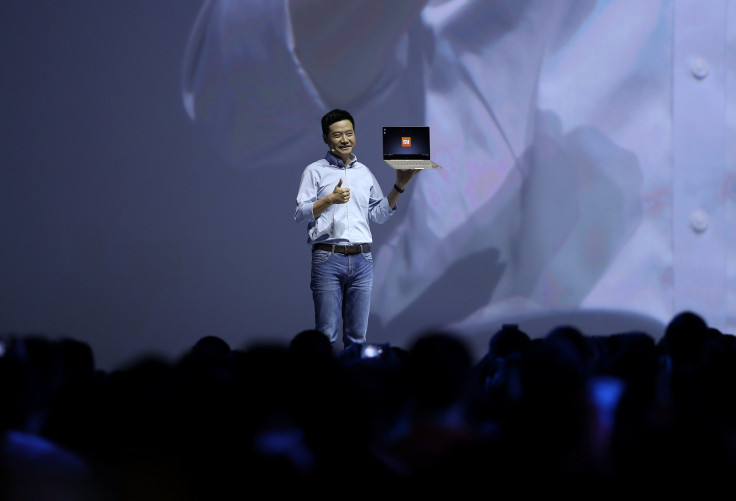Mi Notebook Air: Xiaomi Makes Laptop Foray With MacBook Air Lookalike

After making a mark with its budget-friendly smartphones, China’s Xiaomi has finally entered the market for ultraportable laptops as it unveiled the Mi Notebook Air at a press event Wednesday. The laptop bears striking similarities to Apple’s MacBook Air, which is not exactly new since Xiaomi has made smartphones in the past that looked strikingly similar to the iPhone.
The ultrathin laptop comes in two size variants — 13.3 inches and 12.5 inches that weigh 2.82 pounds and 2.36 pounds respectively. The 13.3-inch version comes with an Intel Core i5 processor, 8GB of RAM, a 256GB SSD for storage. Its USP, however, is a dedicated graphics card, Nvidia's GeForce 940MX, that sets it apart from most laptops of similar dimensions. The smaller variant comes with an Intel Core M3 processor with integrated graphics, 4GB of RAM and a 128GB SSD.
The laptop, which was unveiled along with the dual-camera wielding Redmi Pro phone, boasts a battery life that will last 9.5 hours on a single charge. The bigger laptop can be charged up to 50 percent in half an hour, while the smaller variant comes with a battery that can last 11.5 hours on a single charge, according to Xiaomi.
Prices start from RMB 3499. Gotta catch 'em all! #MiNotebookAir pic.twitter.com/aqCrPyXuoC
— Xiaomi (@Xiaomi) July 27, 2016
Clad in aluminum with no exterior logos, both devices have full HD display and run on Windows 10. For connectivity, the laptops offer a type-C USB port for charging, two USB 3.0 ports, an HDMI port and a 3.5 mm audio port.
Staying in line with its policy of offering premium products at low prices, Xiaomi has priced the smaller Mi Notebook Air at 3,499 yuan ($525), while the 13.3-inch version is priced at 4,999 yuan, making it much more affordable than the MacBook Air’s 11-inch and 13-inch versions that are priced at $899 and $999 respectively.
The Mi Notebook Air will hit Xiaomi’s Mi.com and Mi Home stores in China on Aug. 2. A release outside China, however, seems unlikely.
It remains to be seen how Chinese consumers will take to the laptop, especially considering their affinity to mobile internet, but the move is in line with Xiaomi’s ambition to own every internet-enabled device in Chinese households.
© Copyright IBTimes 2024. All rights reserved.






















